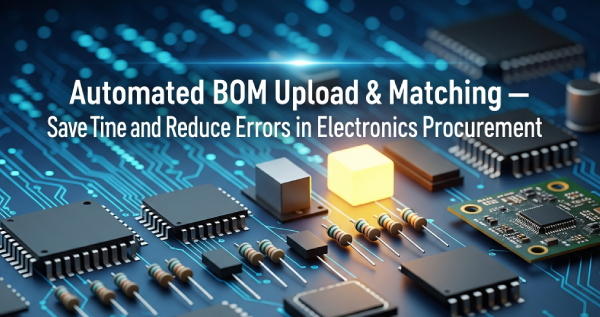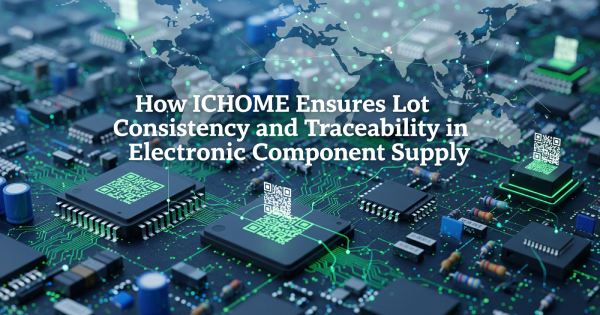Why Working with Trusted Distributors Matters in Electronics Supply Chain
In today’s global electronics market, sourcing components from unfamiliar suppliers is becoming increasingly common—especially during shortages or urgent demand surges. While this may offer access to rare parts or competitive pricing, it also introduces serious procurement risks. From counterfeit products to delivery failures and financial fraud, the consequences of dealing with unknown vendors can be severe.
To mitigate these risks, many buyers are turning to professional electronic component distributors who can act as trusted intermediaries. By leveraging a distributor’s purchasing experience, supplier network, and payment protection services, buyers gain greater security and peace of mind throughout the procurement process.
Fortunately, there is a safer, smarter alternative: leveraging the services of professional electronic component distributors who offer purchasing and payment solutions on behalf of the buyer. This practice not only simplifies the procurement process but also acts as a crucial layer of risk mitigation.
Common Risks When Dealing with Unverified Suppliers
1. Product Quality Issues
One of the most critical concerns when working with unknown suppliers is the risk of counterfeit, obsolete, or substandard parts. In the electronics industry, even minor deviations in component performance can result in costly product failures or regulatory issues. Without a proven track record or certification, unfamiliar suppliers may not meet the required industry standards.
2. Delivery Delays
Time-sensitive production schedules can be severely impacted by late shipments. Unfamiliar suppliers—especially those without transparent logistics practices—may overpromise and underdeliver. In some cases, components may never arrive, or arrive significantly later than expected, leading to halted production lines and missed deadlines.
3. Payment and Transaction Risks
International transactions come with inherent risks, such as lack of payment protection, currency issues, or even fraudulent activity. When dealing with unknown suppliers, buyers are often required to make full payment in advance, leaving them exposed if the order is not fulfilled as agreed.
The Strategic Role of Distributors in Risk Reduction
1. Trusted Quality Assurance
Distributors typically maintain strict quality control standards and partner only with verified manufacturers and suppliers. They have the expertise to inspect and validate components, reducing the risk of counterfeits or defective parts entering the supply chain. Many are also certified under standards such as ISO 9001 or AS9120, ensuring professional-grade quality assurance.
2. Supply Chain Reliability
Established distributors have robust logistics systems and long-standing relationships with suppliers and freight companies. When acting as intermediaries, they can negotiate better delivery terms, track shipments, and manage customs clearance more effectively, ensuring components arrive on time and in good condition.
3. Secure Payment Handling
Through third-party payment services or escrow-like arrangements, distributors can shield buyers from direct financial exposure. They absorb the transactional risk by verifying the legitimacy of the supplier, confirming the shipment before releasing funds, and providing invoices and documentation compliant with international trade standards.
4. Expertise and Market Intelligence
A good distributor brings more than just products to the table. They offer insights into global market trends, alternative sourcing options during shortages, and guidance on lifecycle management. Their market knowledge allows buyers to make informed decisions, reducing both immediate and long-term risks.
When to Consider Distributor-Assisted Procurement
If you are sourcing from a new region, dealing with hard-to-find or EOL (End-of-Life) components, or simply uncertain about a supplier's reliability, engaging a distributor as your procurement partner is a strategic move. It enhances visibility, adds accountability, and ensures that someone is looking out for your best interests throughout the transaction.
Conclusion
In an increasingly complex and globalized electronic component market, risk is unavoidable—but it can be managed. Relying on a reputable distributor to handle sourcing and payments is not just a matter of convenience; it's a proactive step toward protecting your business. By leveraging the distributor’s experience, networks, and credibility, buyers can confidently navigate the supply chain while minimizing costly surprises.




